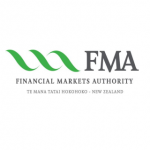
The Financial Markets Authority (FMA) today published a public warning aimed at retail consumers with little or no financial experience to avoid financial scams and disingenuous investment opportunities specifically aimed at retail level investors/traders.
In a statement, the FMA warns people to be “wary of cold-calls asking them to buy shares or put their money into offshore firms." The regulator confirms that it is receiving an “increasing number of complaints about suspicious offers involving the transfer of funds overseas." The FMA specifically highlighted “investment schemes and Forex trading services” as products causing most of the complaints.
Having joined the FMA earlier this year, its Director of Compliance, Elaine Campbell, says the warning is targeting cold-calling "big win" scams, most often from overseas or unknown locations. “There are some tell-tale signs to beware of that should cause consumers to take extra caution,” she adds.

Elaine Campbell, FMA Director of Compliance
Some of the things that should be causing suspicion among clients, as suggested by Ms. Campbell and the FMA, include persistent requests for money to be transferred abroad, giving customers the perception they will miss out on the latest offers if they do not deposit, discouraging seeking independent financial advice and automated trading systems whereby clients pay subscription fees and have their capital traded by an undetermined automated system.
The cliche-slinging Ms. Campbell simplified the FMA's position on the matter by saying, “There’s one principle to keep in mind: if an offer sounds too good to be true, then it probably is. If you don’t understand an investment or product, don’t put your money in.”
A Dash of Perspective
According to the FMA, the agency is powerless to help any investors if their capital has been transferred to another jurisdiction. The regulator recommends working only with New Zealand-based, registered and authorised entities as listed on the FMA website.
In a bid to keep investor trading activity domestic thus supporting the country’s own financial services industry, the FMA says: “Consumers don’t need to be drawn into these dubious offers. They can participate in well-regulated, genuine offers made by firms operating in New Zealand." And adding, “There is plenty of choice in investment and financial services products that are provided by reliable firms and professionals."
To be sure, investors can trade within New Zealand’s borders with the assumption that there are no unscrupulous regulated brokers operating locally. That is rather presumptuous. The FMA could possibly be blurring three vastly different issues of fund security, trading losses and investor psychology (greed). Novice retail clients on average tend to have a poor appreciation and rich misunderstanding of market forces, particular nuances of traded assets and most costly of all, the client-broker relationship.
What We Have Here Is a Problem of Communication
Vast numbers of retail clients rarely consider concepts such as capital segregation, market regulation, advisory authorisation, broker integrity or market suitability - sometimes because they are unaware or simply didn't get round to researching such aspects when their attention and zeal was first captured by a mesmeric flashing banner-ad promising a sturdy monthly profit.
It's not surprising that individuals with working lives are attracted to an alternative way of generating a monthly income; all too often fuelled by the seeming ease with which trading profits/losses can be achieved. The inexperienced investor psyche automatically assumes that markets will go in their favour to suit their desire. The same with cold-calling scams - if a retail investor does not know what a financial scam looks like, even a crude attempt could be taken as authentic because the target is long on wishful thinking and short on questions. Many novice traders don't know what a consistent trading profit over time looks like but they believe in its authenticity when they take the trading chair.
It may be a difficult pill to swallow but the harsh reality is that most new retail clients are motivated by fruits of a looming profit rather than a desire to learn how to trade/invest their capital properly – over time. High expectations tend to lead to uncomprehended, miscalculated risks and inevitably to severe losses and complaints.
Name and Shame
The FMA publishes names of firms and people where it has identified an entity or a person who is operating without registration or authorisation in New Zealand, or where the firm or person is not complying with New Zealand’s financial services law.
Providing a list of undesirable individual and firm names can have the opposite effect however. By NOT being listed illegitimate firms claim legitimacy and gullible investors believe them. The problem is that the FMA can't keep up with the amount of new additions, investors don't check the list and most scammers change brand names repeatedly anyway, in addition to picking similar names to 'reputable' brokers.
Given that investors at the retail level are often confused about particular nuances of financial market trading, illegitimate firms clone websites belonging to reputable firms but use phony URLs to re-direct traffic away from the legitimate site. Not only are retail clients being asked to differentiate between various brokers and their corresponding advantages/disadvantages, but they must also engage in significant due diligence and fact checking before committing any capital to a broker. This includes accurately checking URLs, payment instructions, trading conditions, terms of business, company accounts, reputational history and forum postings.
The end result is that novice market participants have to walk through a bureaucratic minefield before they even reach the market battlefield for pips and ticks. Trading was always hard. Now its harder.
















